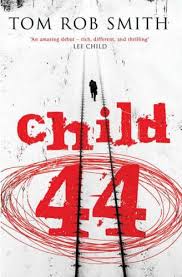 Houghton Mifflin Harcourt
Houghton Mifflin HarcourtISBN 978 0 15 11288 6
If the test of the writer’s craft is in making both good and bad characters equally compelling and readable, then Lynn Freed certainly aces this one. Her book, ’The Servants’ Quarters’, has some supremely unlikeable characters, be it the beautiful and aimless narrator, Cressida, her grasping mother or their wealthy benefactor, Mr Harding . And yet, this slim book with its spare and fluid narrative keeps you hooked and eager to know the fate of these frail, flawed people.
Set in an unnamed location in South Africa in the years following World War II, the story follows the relationship between Cressida and Harding over a decade. When they first meet, she is a precocious nine year old with a father in a coma, facing imminent financial ruin, while he is a much older war veteran who has suffered severe disfigurement in combat. For reasons not immediately clear, he begins supporting the family, even moving them to the servants’ quarters of his own house. His mentoring of Cressida seems avuncular (if condescending) at first, but soon begins to take on more predatory overtones that people around them either do not notice or choose not to. For all her reservations and despite knowing about his other affairs, Cressida is slowly drawn toward the man and he becomes the only stable constant in her life, and her most important influence, as things around her change. She blooms into a beautiful teenager, struggling with her silent love for Harding and her yearning to be free of her mother. She is directionless, bored, and casually toys with men who are besotted with her, even as she waits for Harding to notice her and whisk her away to his world of privilege.
As much as this is a love story, it is also a frank examination of the dynamics between rich and poor in the claustrophobic town that Cressida lives in , and that both she and her mother long to be freed from. Intertwined with these stories is a narrative on the devastating consequences of war, be it on Harding who has survived combat and prisoner camps, or the young Jewish Cressida who is haunted for years by nightmares of German soldiers . This shared anguish becomes a bonding force between the two, even as the people around them remain indifferent to it or choose to move on.
If you are looking for a story about a girl finding her wings and flying away, of a love that sets her free ..this isn't it. A bleakness hangs over the narrative, reminiscent of Dickens - the voice of the narrator grows from that of a knowing, free spirited child to that of a more cynical woman, changed forever by Harding's unwholesome attentions.If Harding is drawn to her fierce spirit as a child, he also manages to squash it completely over the years, leaving her an infatuated teenager with little on her mind but him. As a child she has been tormented by the fate of millions of Jews like her in the War, yet as a grownup the apartheid that must surely have existed around her at the time, never once finds mention. Clearly, Cressida's world has shrunk from the boundlessness of her childhood, to the social and emotional distance that separates her from her warped Daddy long legs. The biggest tragedy for me here was that, despite her revulsion for her grasping and opportunistic mother, and despite being offered the chance to go to university and escape this town on her own terms, Cressida nonetheless ends up just like her mother in many ways.
Freed keeps a clear unflinching eye on her characters, charting their lives with prose that is at once precise and nonjudgmental. You may never like Cressida or Harding, you may flinch at the idea of their romance, yet when it does come about, you cannot help hoping they find a golden sunset to walk into. If this is 'Beauty and the Beast' retold, it is also a retelling that captures the beasts within every one of its characters, as they strive to be redeemed by love from the worst in themselves.






